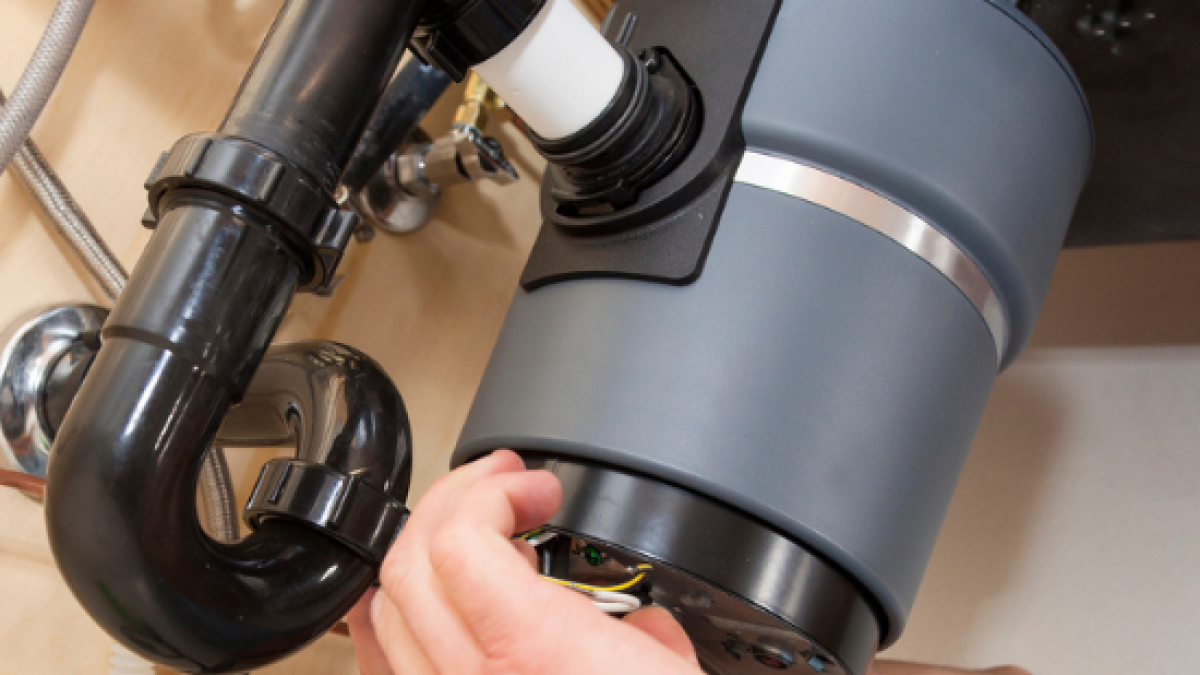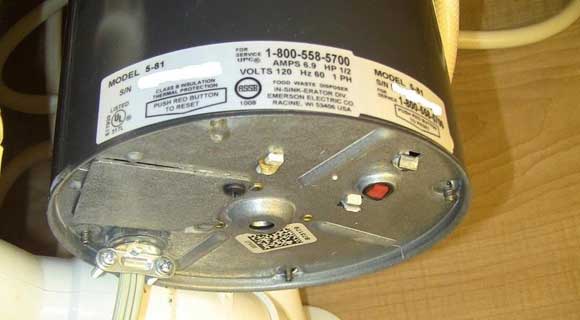How do you really feel in relation to How to fix a pretty consistent leak from my garbage disposal?

Garbage disposals are vital kitchen home appliances that assist in dealing with food waste efficiently. Nevertheless, a dripping garbage disposal can be an aggravating and unpleasant issue to manage. Fortunately, lots of leakages can be fixed easily with a couple of basic steps. In this write-up, we will certainly talk about exactly how to repair a dripping garbage disposal successfully.
Introduction
Waste disposal unit are installed under kitchen sinks and are developed to shred food waste into smaller items, allowing it to travel through the plumbing system conveniently. While these devices are normally dependable, leaks can take place in time due to deterioration, loose connections, or damages to the unit.
Step-by-Step Guide to Dealing With a Leaking Waste Disposal Unit
Turn Off the Power
Before attempting any repairs, make certain that the power to the garbage disposal device is switched off to stop the risk of electrical shock.
Locate the Leakage
Identify the specific location of the leak and establish the reason
Tighten up Links
Utilize a wrench to tighten any kind of loose connections between the disposal unit and the plumbing system.
Replace Seals or Gaskets
If the leakage results from worn seals or gaskets, eliminate the old parts and change them with new ones.
Patching Splits or Openings
For cracks or openings in the disposal device, use epoxy or an appropriate patching product to seal the damaged location.
Identifying the Source of the Leakage
Before trying to fix a leaking waste disposal unit, it is important to identify the source of the leakage. This can normally be done via visual assessment or by conducting basic examinations.
Visual Evaluation
Inspect the garbage disposal device carefully for any type of indicators of water leakage. Pay very close attention to areas around seals, gaskets, and connection factors.
Checking for Leakages
One method to examine for leakages is by running water via the disposal unit and checking for any visible signs of leakage.
Typical Reasons For Leakages in Waste Disposals
Worn Seals and Gaskets
Seals and gaskets play an essential role in avoiding water from leaking out of the garbage disposal. In time, these elements can weaken, resulting in leaks around the disposal unit.
Loose Connections
The connections between the garbage disposal and the plumbing system can become loosened with time, creating water to leakage out throughout operation.
Fractures or Holes in the Disposal Unit
Physical damage to the garbage disposal, such as cracks or openings in the real estate, can likewise lead to leaks.
Tools and Products Needed for Dealing With a Dripping Garbage Disposal
Before beginning the repair procedure, collect the needed tools and materials, consisting of a screwdriver, flexible wrench, plumbing technician's putty, replacement seals or gaskets, and epoxy or patching material for fixing splits or openings.
Testing the Waste Disposal Unit After Repair Service
When the repair work is complete, examine the waste disposal unit by running water through it to ensure that the leakage has been resolved.
Preventive Maintenance Tips to Prevent Future Leaks
To prevent future leaks, it is necessary to carry out regular maintenance on your garbage disposal. This consists of keeping it tidy, preventing putting non-food items or difficult items down the disposal, and periodically checking for leaks or various other issues.
Final thought
To conclude, taking care of a dripping waste disposal unit is a fairly simple process that can be finished with fundamental tools and products. By complying with the steps outlined in this post and practicing precautionary maintenance, you can maintain your waste disposal unit in good working condition and prevent costly repair services in the future.
HERE’S HOW TO FIX YOUR GARBAGE DISPOSAL
WHAT TO DO IF SOMETHING IS STUCK IN YOUR GARBAGE DISPOSAL
If the impeller won’t turn, there’s probably something stuck in the disposal. It could be a steak bone or peach pit, although plumbers report pulling all sorts of inappropriate objects out of disposals, such as bottle caps or aluminum foil. Make sure power to the disposal is off, and look inside to see if you can see the source of the jam.
Never stick your fingers in a disposal. Pull out anything you see with tongs or pliers.
If the disposal still won’t work, it may be time to call a plumber or consider buying a new disposal. GEM Plumbing & Heating is here for all of your garbage disposal needs.
WHAT TO DO IF YOUR GARBAGE DISPOSAL DRAIN IS CLOGGED
Take everything out from underneath your sink and put a bucket or other container under your disposal to catch any water that drains out. Disconnect your disposal from the power supply. If it’s plugged into a wall outlet, unplug it. If it’s hardwired into an electrical box, go to the electrical panel and turn off the breaker for the disposal. Pour ¼ cup of baking soda into the drain, followed by ½ cup of white vinegar. Give the solution a few minutes to fizz and do its work. Look into the disposal with a flashlight to see if you can see an object that might be causing the clog. If you see it, remove it using tongs or pliers. MORE TIPS ON DEALING WITH A CLOGGED GARBAGE DISPOSAL
Never use drain cleaner in a garbage disposal. It can damage the plastic parts inside the disposal. You can also be splashed with the caustic liquid while working to clear the clog. Beware! Never stick your fingers into a garbage disposal. Trust us — not a good idea. In many instances, your dishwasher drains through your garbage disposal. This allows the disposal to grind any large food particles that may be drained out of your dishwasher. There are some jurisdictions, however, where the plumbing code prohibits such a connection. WHAT TO DO WHEN YOUR DISHWASHER DRAINS THROUGH THE DISPOSAL
Run some water in the sink so your plunger has at least a ½-inch of water to create a seal and plunge vigorously up and down several times. You may need to repeat this several times. Run hot water down the drain to clear any residue that remains.

As a devoted person who reads on Why Is , I was thinking sharing that section was important. Are you aware of somebody else who is interested by the topic? Take a moment to share it. Thanks so much for your time invested reading it.
Click Here To Find Out More